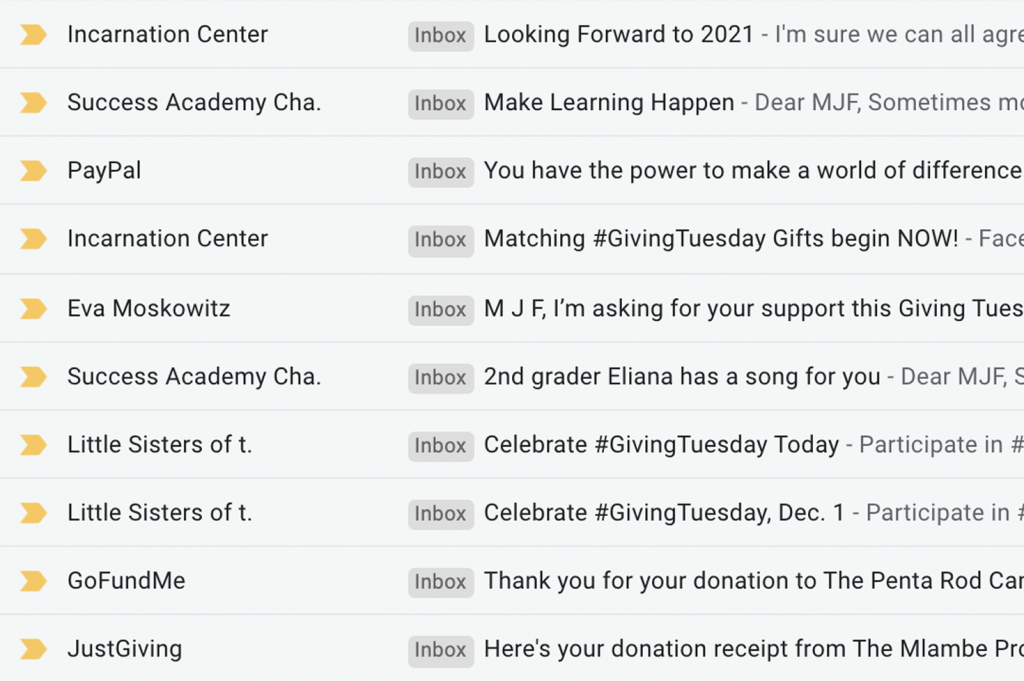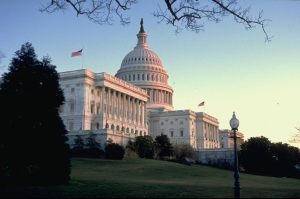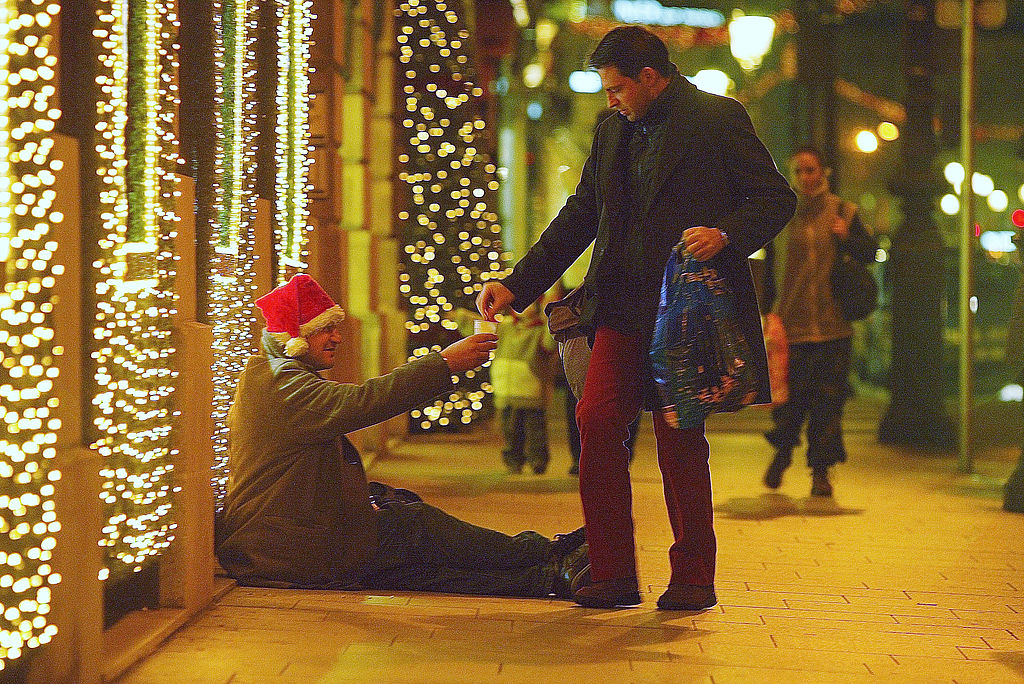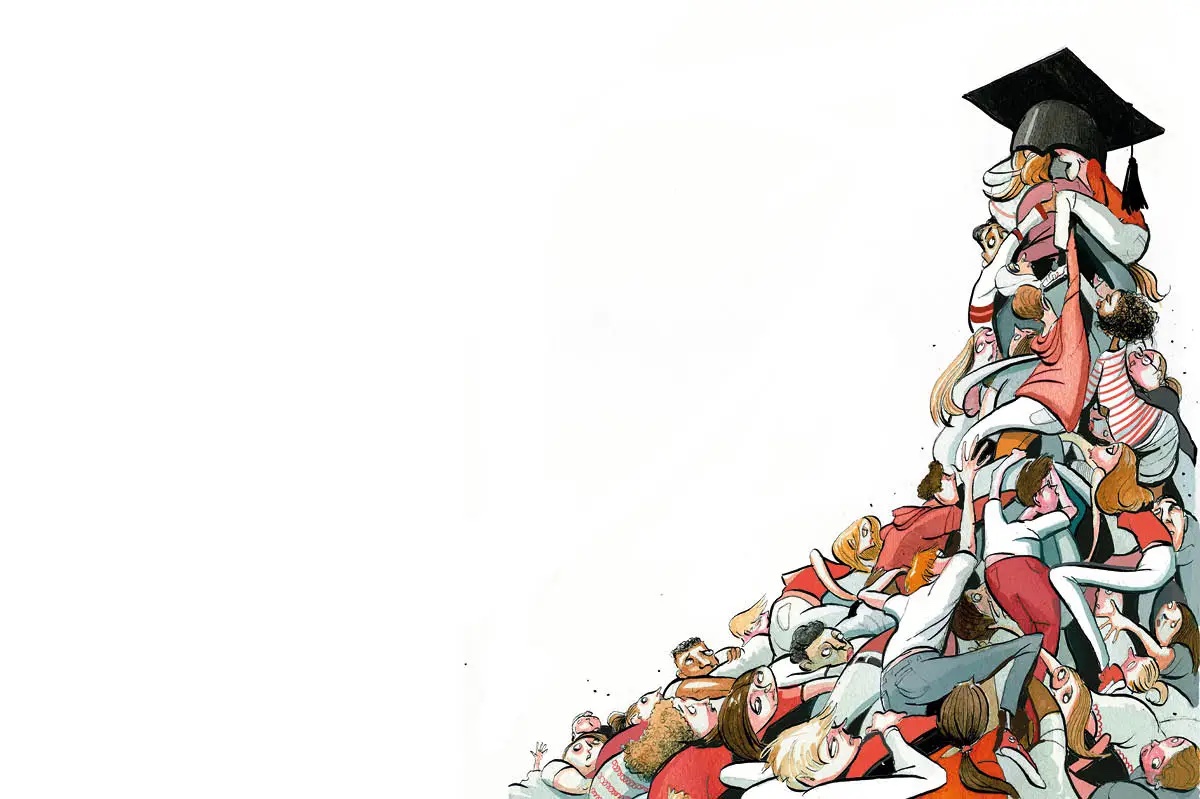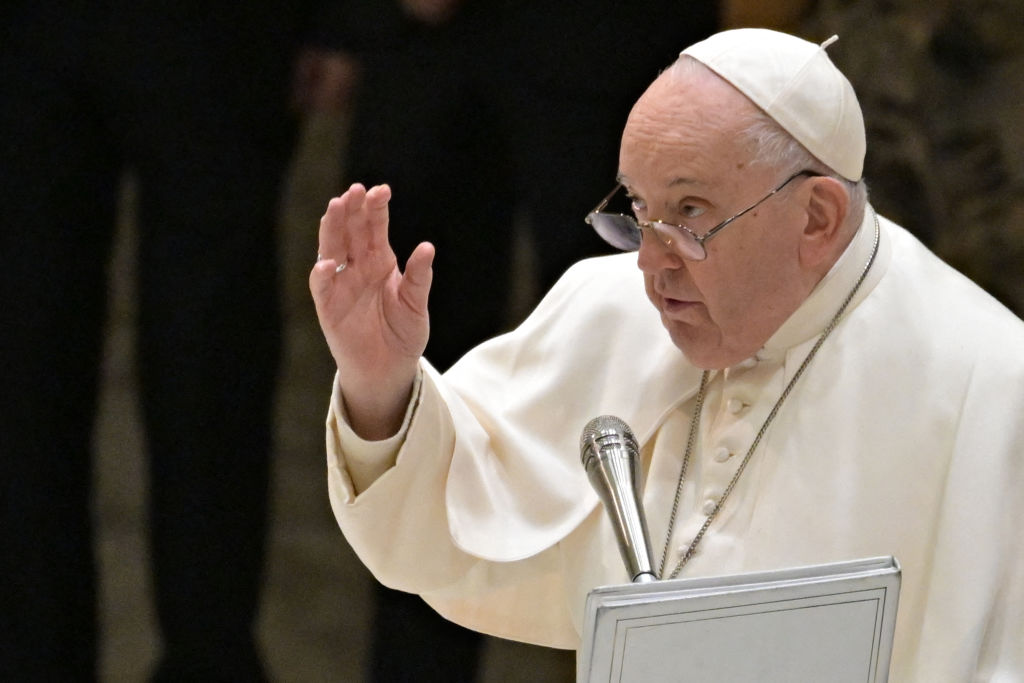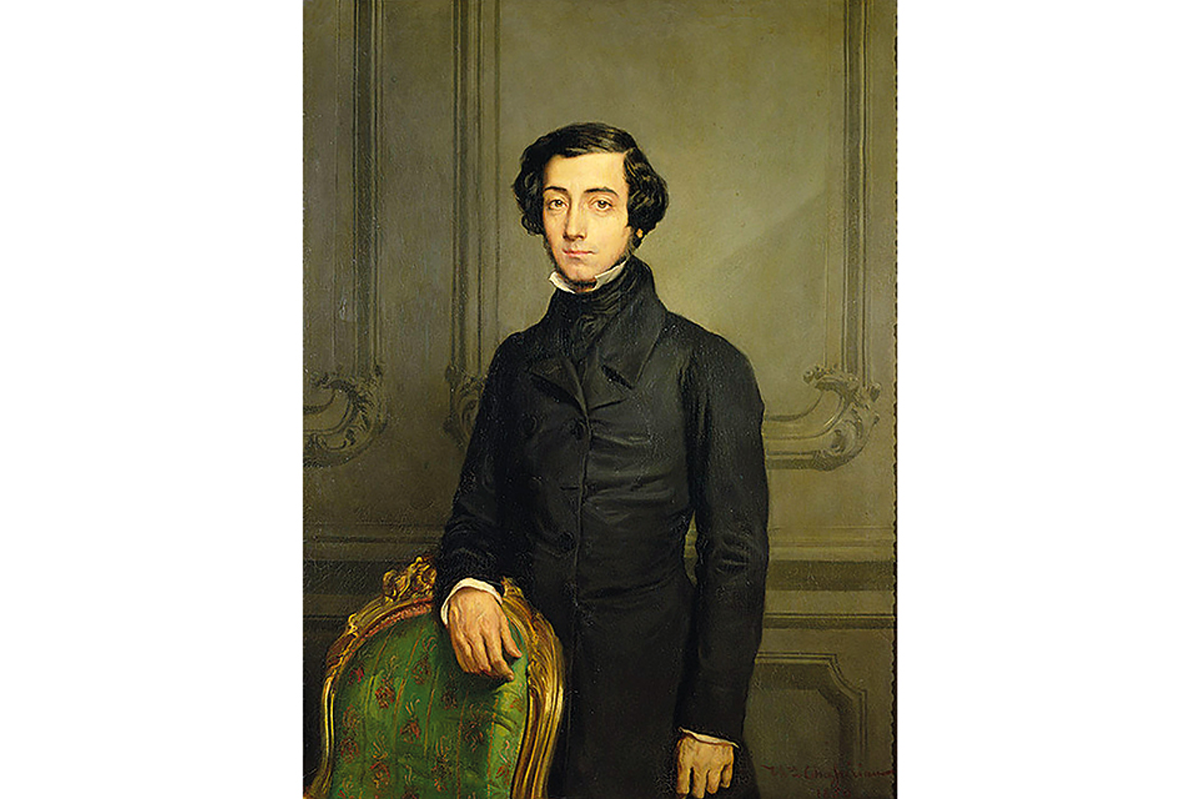It’s a small miracle, really, and it only happens in America. Every December, the mailboxes fill with requests for donations. They come from St Jude’s Hospital, the Salvation Army, the World Jewish Congress, Nature Conservancy, Feed America, the American Cancer Society and thousands more. They trickle in all year, but the deluge comes after the clock strikes 12 on December 1. And not just emails. Every day the postman brings more, most describing the charities’ good works, offering heart-warming (or heart-wrenching) stories of the people they help, and perhaps including a calendar for the coming year. Another request appears on Wikipedia pages, reminding us this invaluable service is funded solely by donations.It’s easy to see this onslaught as junk mail, and some of it surely is. But most of it is meaningful, and its most important meaning is what it says about America. The requests are emblems of a civil society organized and funded by individuals, the foundations they set up, and the bequests they made. Their contributions seek to sustain a civil society that stands between state power and individual citizens. It is filled with voluntary associations and private, non-profit organizations. This robust civil society is characteristic of the Anglo-Saxon world, and it is especially strong in the United States. Its future is one of the most vexing problems facing our divided country.To understand America’s unique civil society, consider a major theater for the performing arts in France or Germany. The programs for each performance need only thank one patron: the government’s ministry of culture. Not in America. A similar theater would thank a long roll call of donors, listed in every program. The American theater would hold private parties for its supporters and offer previews and special readings. Its board of directors would include major donors and others it was cultivating. Its buildings would carry their names.Or take higher education, where American philanthropy plays a central role. There are few counterparts abroad. When Margaret Thatcher began pinching Britain’s university budgets, the schools tried to cover the shortfall by turning to private donors. By then, unfortunately, Britain’s ancient culture of private giving had shriveled, perhaps for tax reasons, perhaps because the state was now expected to fund all major institutions. Where did Oxford and Cambridge secure their much-needed donations? Mostly from Americans who matriculated there, plus some wealthy immigrants who wanted their names on buildings. The same is true for Israeli universities, where the big private donors are Americans.Of course, America’s culture of private giving is supported by the tax code. But it cannot be reduced to venality and personal gain. Many donations come from selfless, grateful people who receive nothing tangible in return. They could listen to public radio or use Wikipedia without donating. They could buy tickets for the Boston Symphony or Metropolitan Museum of Art without covering the full costs of their attendance. They could display their college diplomas without giving to the annual campaign or endowing professorships. But millions give anyway.In fact, every American university, public and private, has vigorous fundraising programs to supplement tuition and government grants. Besides gifts to the university as a whole, donors reach out to specific campus organizations, such as those that provide services for Catholic, Jewish, Protestant and Muslim students. They support the alumni magazine, the campus art museum, and guest lectures for students. They set up scholarships so graduates can continue their studies at other universities. And on and on. That’s what these annual fundraising letters remind us.Some critics see a dark side to this fundraising, beyond the junk mail and some badly-run charities. They consider the need for private donations a troubling indicator of inadequate public funding in important fields, such as the arts or health care. That is sometimes true, and the criticism shouldn’t be brushed aside. But neither should it obscure the other message of these fundraising requests. They are positive indicators of our private willingness to support vital social institutions, such as theaters, libraries, hospitals, food banks, zoos, parks, and museums.That’s not just the work of a few big donors, today’s Medici. These institutions depend on a wide range of contributions, from $100 to $100,000 to $100 million. Often, larger donors encourage smaller ones by offering to match them two-for-one or three-for-one. These ‘challenge grants’ do more than raise money for this year’s budget. They seek to build a broader, deeper donor base that can sustain these institutions over time.These collective, private efforts are pervasive features of American life, and they contrast sharply with other advanced democracies. The World Giving Index consistently ranks the US number 1. Among continental European countries, where the state sector looms so large, only the Netherlands ranks among the top 10 (at number 8). China ranks dead last.Of course, American rely far more heavily on the market than on charities or the state to provide goods and services, including cultural ones. Europeans who mock America’s lack of public funding for the arts should remember when New York became the center of the art world. It happened in the 1950s, without public funding. The names we now hallow — Rothko, Pollack, de Kooning, Motherwell, Kelly and Kline — paid their rent by selling their paintings.The same commercial impulse is true for America’s four great musical contributions: jazz, blues, rock and roll and Broadway show tunes. Jerome Kern and Oscar Hammerstein II wrote Show Boat to put paying bottoms on Broadway seats. Muddy Waters wasn’t living on a grant from National Endowment for the Arts when he sang ‘Got My Mojo Workin’’. His mojo was workin’ every Friday and Saturday night to bring paying customers into the bars where he performed.Alexis de Tocqueville never interviewed Muddy Waters or Mark Rothko (a scheduling problem, no doubt), but he did notice the same two features of American life we have highlighted: yhe individualist preoccupation with making money, and the collaborative effort to solve problems through voluntary organizations. Tocqueville was amazed by Americans’ eagerness to form organizations and solve problems. In Democracy in America he wrote: ‘Americans of all ages, conditions and all dispositions constantly unite together… To hold fetes, found seminaries, build inns, construct churches, distribute books, dispatch missionaries to the antipodes. They establish hospitals, prisons, schools by the same method. Finally, if they wish to highlight a truth or develop an opinion by the encouragement of a great example, they form an association.’Tocqueville saw at least two profound benefits from this volunteerism, beyond solving specific problems. First, it brought together people who, in an individualistic society, would otherwise be isolated and devoted only to their narrow self-interest. Second, by establishing these collective enterprises and running them, communities learned how to govern themselves.Voluntary organizations and philanthropies still draw us out of our parochial worlds, but today they teach us far less about self-government. That’s because most charities, however worthy, are now large, distant organizations, run by experienced professionals. We send them a check, and that’s the end of it. They don’t teach us how to make joint decisions or organize collaborative efforts. That happens not when you write a check but when you plan a fundraiser for your church, supervise a local Cub Scout troop, coach junior soccer, lead a local alumni association, or mentor a group of young people.There’s a wide gulf between donating to the International Fellowship of Christians and Jews and serving on your synagogue’s board of directors. Both contribute to civil society but, if Tocqueville is correct, then it is the local, direct acts of civic engagement that really help us acquire the tools of self-government.This kind of hands-on civic engagement has, alas, declined dramatically since its peak in the mid-1960s. That’s the message of Robert Putnam’s influential book, Bowling Alone. We don’t yet know what will replace the institutions in decline, the old Elks Clubs and Women’s Auxiliaries that were once pillars of local society. No one knows what, if anything, will take their place and what role our ubiquitous electronic connections will play in it.
[special_offer]
We do know how important it is to sustain these voluntary efforts, at both the local and national levels. This web of social institutions not only stands between the isolated citizen and the state, it blocks the state from seeping into every corner of social, cultural, educational, and artistic life, first by providing much-needed funding and then by demanding recipients meet the government’s rules to receive it. The result when it does suffuse all life is that private volunteerism withers, as Oxford and Cambridge found out.Of course, state funding is often necessary. Volunteer fire departments may be great for Mayberry, but not for Manhattan. The question is how far these state efforts should go? What happens if we let them continuously ratchet up in size, scope, and budget? There are costs and dangers in that trend since ever-expanding state bureaucracies squeeze out voluntary efforts and constrict the market. All three — state, market, and civil society — are essential components of a liberal society that gives citizens wide space for initiative and free choice.Sustaining this space for individual choice and action, for private generosity and public beneficence, is the larger meaning of these December emails. They do more than fund organizations doing good work. They create a richer, more diverse society, a uniquely American one.Charles Lipson is the Peter B. Ritzma Professor of Political Science Emeritus at the University of Chicago, where he founded the Program on International Politics, Economics and Security.



